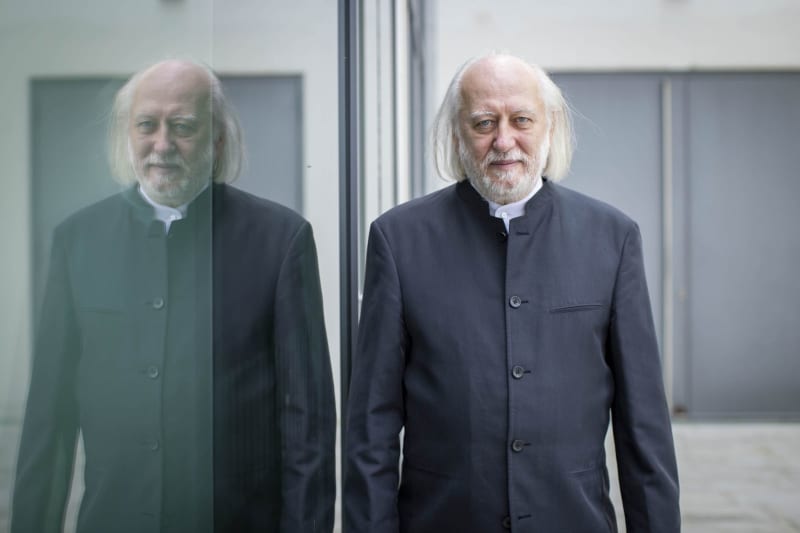Hungary’s László Krasznahorkai has been awarded the 2025 Nobel Prize in Literature “for his compelling and visionary oeuvre that, in the midst of apocalyptic terror, reaffirms the power of art,” the Swedish Academy said on Thursday.
“László Krasznahorkai is a great epic writer in the Central European tradition that extends through Kafka to Thomas Bernhard, and is characterised by absurdism and grotesque excess,” the academy said.
“But there are more strings to his bow, and he also looks to the East in adopting a more contemplative, finely calibrated tone.”
Novelist and screenwriter Krasznahorkai, 71, was born in the small town of Gyula in south-eastern Hungary, near the Romanian border.
He had been seen for years as a strong contender for the Nobel Prize.
After studying law and Hungarian literature, he made his own literary debut in 1985 with “Satantango,” a novel set in a rain-drenched, dystopian village populated by half-crazed residents. It was subsequently made into a film lasting over 7 hours by Hungarian director Béla Tarr.
His challenging works are often described as post-modern and apocalyptic, as well as being strongly influenced by literary greats such as Franz Kafka and Samuel Beckett.
Before Krasznahorkai’s could celebrate his win, German bureaucracy intervened.
In an interview with the Nobel Foundation, Krasznahorkai said he was in Frankfurt on Thursday and had to visit “a so-called Anmeldeamt” – meaning a local registration office.
“I changed my place, my second place, and I will go to an administrator, to report my new address, postal address in Germany.”
“I didn’t count on these fantastic news, and that’s why I cannot make changes. Maybe in the evening we will make some dinner with my friends here in Frankfurt with port wine and champagne.”
According to his German publisher house S. Fischer, Krasznahorkai, who has several residences, was sitting in a car with his former editor when the news broke.
“I’m very happy and I’m very proud, because to be in the line which contains so many really great writers and poets gives me power to use my original language, the Hungarian language,” he told the Nobel Foundation.
“I wish for everybody to get back the ability to use their fantasy, because without fantasy it’s an absolute different life,” he said, adding: “Reading gives us more power to survive this very, very difficult time on Earth.”
In Hungary, top politicians set aside party divisions to congratulate the writer.
“Hungary’s pride, the first Nobel laureate from Gyula, László Krasznahorkai. Congratulations!” Prime Minister Viktor Orbán wrote on Facebook.
Krasznahorkai’s work has often been viewed with scepticism by the Hungarian right and Orbán’s circle.
In 2018, the government-aligned outlet Magyar Idők included him among more than 30 writers it labelled “left-wing liberal opinion makers … who slander Hungarians and Prime Minister Viktor Orbán.”
Opposition leader Péter Magyar wrote that Krasznahorkai’s best novels “depict the forgotten Hungarian provinces, the world of people oppressed by power,” while Budapest’s progressive Mayor Gergely Karácsony called the Nobel “a perfect and well-deserved honour.”
Krasznahorkai is the second Hungarian to win the Nobel Prize in Literature after Imre Kertész in 2002.
The Nobel Prize in Literature is worth 11 million Swedish kronor ($1.16 million) this year.
The award for Krasznahorkai continues a pattern of recent years: since 2017, the winners of the Nobel Prize in Literature have alternated between men and women.
South Korean author Han Kang won last year’s prize. In 2023, the winner of one of literature’s highest honours was Norwegian novelist and playwright Jon Fosse. In 2022, the French author Annie Ernaux won for her body of largely autobiographical work.









